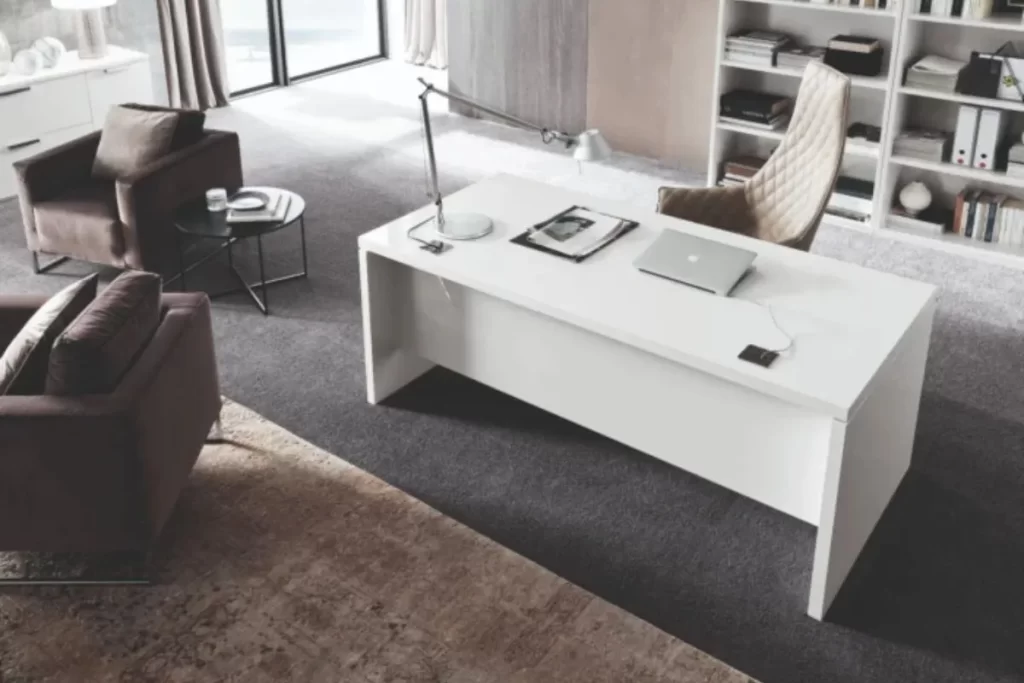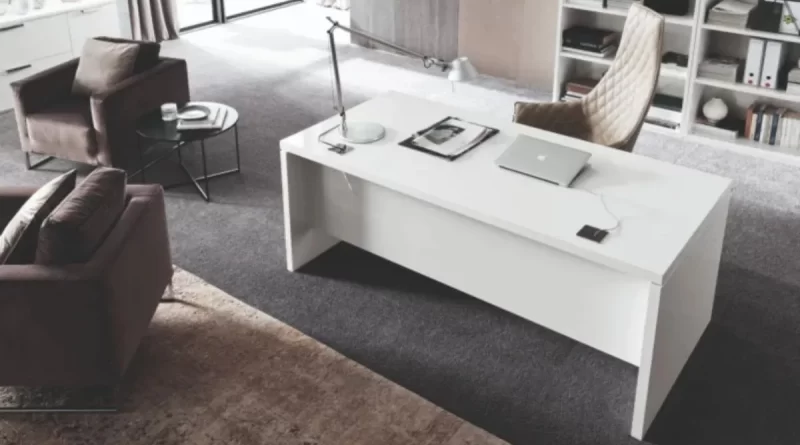The Best Guide to Choose an Office Desk for Work and Rest
Importance of Choosing the Right Office Desk

As someone who spends a significant amount of time working at a desk, I can attest to the importance of choosing the right office desk. A well-designed desk not only enhances the aesthetics of your workspace but also plays a crucial role in your overall work performance and comfort. It is the foundation upon which your productivity and well-being are built.
One of the primary reasons why choosing the right office desk is crucial is because it affects your posture and ergonomics. A poorly designed desk can lead to discomfort, fatigue, and even long-term health issues such as back pain and repetitive strain injuries. On the other hand, a desk that is ergonomically designed and tailored to your specific needs can promote proper posture, reduce the risk of injuries, and enhance your overall comfort and well-being.
Factors to Consider When Choosing an Office Desk
When it comes to choosing office desk furniture, there are several factors to consider to ensure that you make the right decision. First and foremost, you need to assess your specific needs and preferences. Are you someone who requires a large workspace for spreading out documents and materials? Or do you prefer a more compact desk that fits into a smaller area? Understanding your requirements will help you narrow down your options and find a desk that meets your needs.
Another important factor to consider is the material and construction of the desk. Desks are available in a variety of materials, including wood, metal, and glass. Each material has its advantages and considerations. For example, a wooden desk provides a classic and timeless look, while a glass desk can add a touch of modernity and elegance to your workspace. Additionally, consider the durability and sturdiness of the desk, as you want it to withstand the demands of daily use.
Different Types of Office Desks
Office desks come in a variety of types, each catering to different needs and preferences. Understanding the different types can help you make an informed decision based on your requirements. Let’s explore some of the most common types of office desks:
- Executive desks: These desks are typically larger and more spacious, designed for executives and professionals who require ample workspace. Executive desks often feature additional storage options such as drawers, cabinets, and shelving units.
- L-shaped desks: As the name suggests, L-shaped desks are designed in an L shape, providing two separate work areas. These desks are ideal for individuals who need to multitask or have multiple monitors or devices.
- Corner desks: Corner desks are specifically designed to fit into corners, making efficient use of space. They are a great option for smaller offices or home workspaces.
- Adjustable height desks: These desks allow you to adjust the height, providing flexibility for sitting or standing while working. Adjustable height desks promote better ergonomics and can reduce the negative effects of prolonged sitting.
- Writing desks: Writing desks are simple and minimalist, primarily designed for writing tasks. They often feature a large flat surface and minimal storage options.
Ergonomic Office Desks for Improved Comfort and Productivity
In recent years, there has been a growing emphasis on ergonomic office desks that prioritize comfort and well-being. These desks are designed to promote proper posture, reduce strain on the body, and enhance overall productivity. If you prioritize your health and want to optimize your work experience, investing in an ergonomic office desk is a wise choice.
Standing Desks and Their Benefits
Standing desks have gained popularity in recent years due to their potential health benefits and their ability to combat the negative effects of prolonged sitting. These desks allow you to work while standing, promoting better posture, increased movement, and improved blood circulation. If you find yourself sitting for long hours, a standing desk could be a game-changer for your work routine.
A well-organized desk is key to maximizing efficiency and reducing distractions in the workplace. Here are some tips to help you organize your desk and create an environment conducive to productivity:
- Declutter regularly: Take the time to declutter your desk regularly. Remove any unnecessary items, file away documents, and keep only the essentials within reach. A clutter-free workspace promotes a clear mind and allows you to focus on the task at hand.
- Use desk organizers: Invest in desk organizers such as pen holders, file trays, and cable management solutions. These accessories help keep your desk tidy and make it easier to find what you need when you need it.
Conclusion
Choosing the right office desk is a decision that should not be taken lightly. The right desk can greatly enhance your work experience, promoting comfort, efficiency, and overall well-being. Consider factors such as ergonomics, material, and design when making your choice. Explore different types of desks to find the one that best suits your needs and preferences.
Investing in an ergonomic office desk or a standing desk can have long-term benefits for your health and productivity. These desks prioritize your well-being, providing adjustability, comfort, and movement. Additionally, organizing your desk for maximum efficiency helps create a focused and clutter-free workspace.

